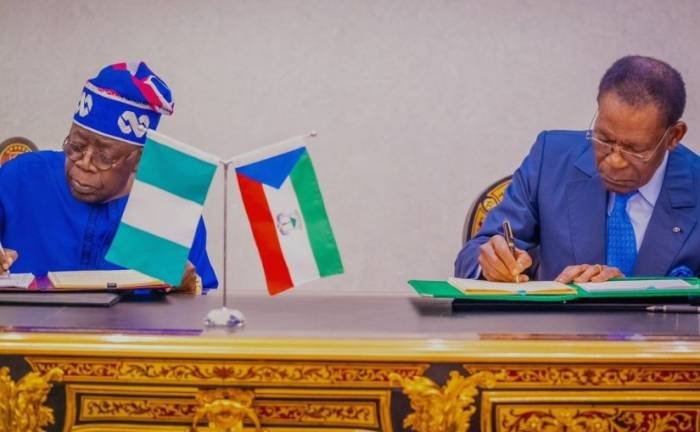By News.Az
Nigeria and Equatorial Guinea have signed a strategic agreement for the construction of a pipeline in the Gulf of Guinea, marking a significant step forward in energy cooperation in West Africa. The signing took place in the capital of Equatorial Guinea, Malabo, and heralded a new phase in the region’s economic development.
The pipeline, which will connect both countries, is set to become a vital piece of infrastructure, facilitating the transit of natural gas to international markets as well as supplying domestic consumers. Nigerian President Bola Tinubu emphasized that this project will create new opportunities for the country, not only in gas exploration and processing but also by generating thousands of jobs. This will make a substantial contribution to improving the economic situation and raising the standard of living for citizens.
This project holds not only energy significance but also broad economic potential. It is expected that the pipeline’s construction will attract substantial investment to the region, create thousands of jobs, and raise the level of professional training for local workers. In the long term, the project could also help strengthen the internal gas market, reducing the region’s dependence on imported energy resources.
Economists and experts believe that the pipeline in the Gulf of Guinea could become a catalyst for the creation of new industrial zones along its route. These zones could, in turn, attract further investment in gas production and processing, leading to economic diversification and reducing dependence on raw material exports.
The agreement also carries important political significance, strengthening the relationship between Nigeria and Equatorial Guinea. Joint work on the pipeline project creates conditions for deepening cooperation in other key areas such as security, food security, and infrastructure development.
In his remarks, President Tinubu noted that African countries should focus more on internal resources and cooperation to solve their problems. He stressed the importance of joint efforts to ensure stability and peace on the continent, noting that conflicts like those observed in the Republic of Congo could be avoided if African countries work together.
Equatorial Guinea’s President Teodoro Obiang Nguema Mbasogo also expressed a willingness to deepen cooperation with Nigeria, emphasizing the importance of joint work on security and food security. He reaffirmed his support for Africa’s initiative to secure a permanent seat on the UN Security Council, which he believes is essential for strengthening the continent’s position on the international stage.
 The pipeline agreement is a clear example of how African countries can join forces to address common challenges and achieve economic growth. This project represents a new wave of regional cooperation, where countries strive for independent development and seek to reduce their dependence on external factors.
The pipeline agreement is a clear example of how African countries can join forces to address common challenges and achieve economic growth. This project represents a new wave of regional cooperation, where countries strive for independent development and seek to reduce their dependence on external factors.
Bashir Mohammed, an international relations expert, noted that this project has the potential to significantly improve the economic situation in both countries. He emphasized that the creation of new jobs and increased income from gas transit could substantially strengthen the economies of Nigeria and Equatorial Guinea, making them less vulnerable to external shocks.
Furthermore, the pipeline project could stimulate the development of new infrastructure projects in the region, leading to further economic growth. This step demonstrates that African countries are ready and capable of solving their problems independently, leveraging internal resources and opportunities to achieve sustainable development.
The signing of the pipeline agreement between Nigeria and Equatorial Guinea is not just an economic milestone but also an important step toward strengthening regional stability and cooperation. This project has the potential to serve as a model for other African countries seeking independent development and reduced reliance on external factors. It symbolizes a new chapter in the history of the African continent, where internal resources and cooperation are key to success.




